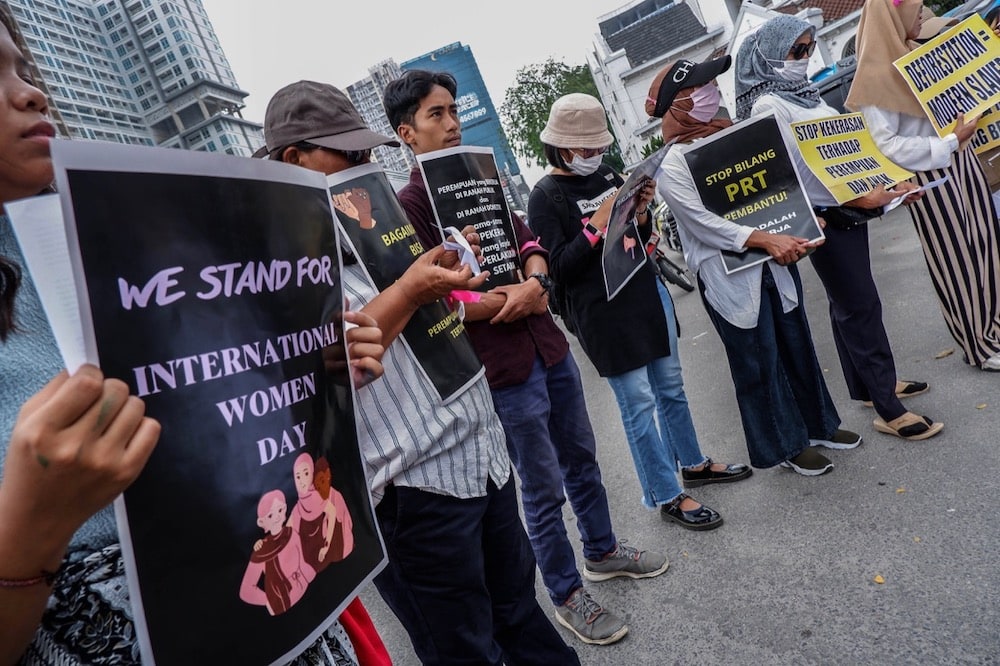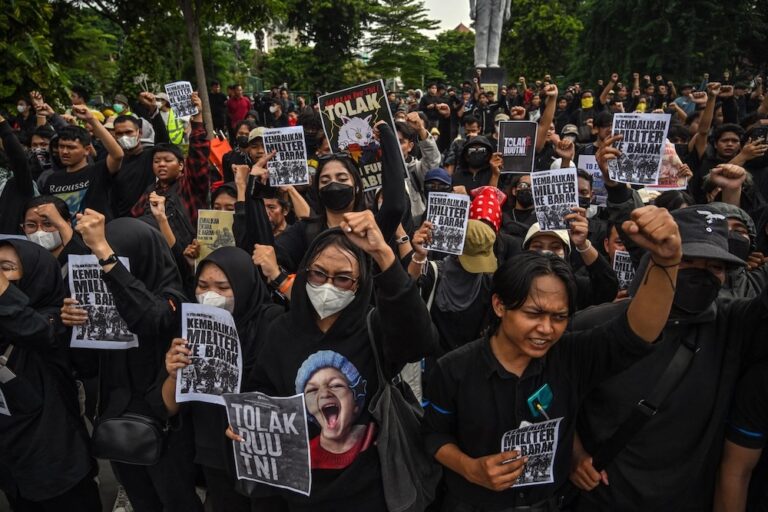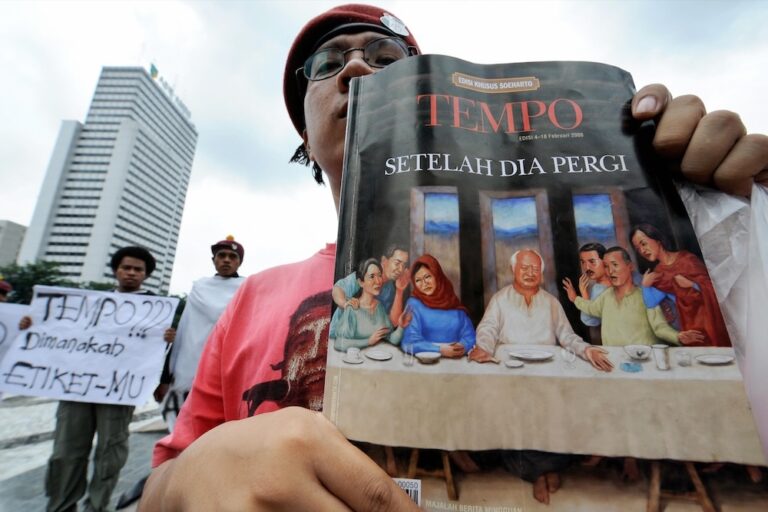Amnesty International Indonesia and the Alliance of Independent Journalists urged the government to uphold its human rights commitments and reverse the shrinking civic space in the country.
This statement was originally published on aji.or.id on 28 March 2023.
The government of Indonesia must uphold its commitment to respect, protect, and fulfil human rights obligations and urgently reverse the trend of shrinking civic space in the country, Amnesty International Indonesia and The Alliance of Independent Journalists said today, in response to the adoption of Indonesia’s Fourth Universal Periodic Review (UPR) during the Human Rights Council’s 52nd Session.
Indonesia’s human rights record was recently reviewed for the fourth time during the 41st session of the UPR, during which Indonesia received 269 recommendations from 108 states to improve the human rights situation in the country to fulfil their human rights obligations.
Indonesia has stated that it supports 205 recommendations made by other states, meaning the government has committed to implementing them by the next review in 2027.
However, Indonesia partially supported a further five recommendations, and “noted” 59 others. This means the government does not agree with these recommendations and has not committed to implement them. These recommendations coincide with some concerning issues in the country, including the protection of fundamental rights, respect for human rights defenders, as well as the situation in Papua.
“We appreciate the government’s support of many recommendations – namely to increase efforts to ratify the Optional Protocol to the Convention against Torture and Other Cruel, Inhuman, or Degrading Treatment or Punishment (OP-CAT) and the International Convention for the Protection of All Persons from Enforced Disappearance (ICPPED),” Amnesty International Indonesia Executive Director Usman Hamid said.
“We hope this commitment translates into the swift ratification and implementation of such treaties and an improvement of the human rights situation in Indonesia.”
“However, we remain concerned about the shrinking civic space in the country. We continue to receive credible reports of attacks on human rights defenders and journalists, as well as the criminalization of peaceful protests,” the Alliance of Independent Journalist Chairperson, Sasmito Madrim, said.
“We are also alarmed by the recent enactment of Indonesia’s new Penal Code, which seriously impedes the enjoyment of fundamental rights, including the right to freedom of expression, association, and peaceful assembly,” Usman added.
Indonesia also ‘supports’ recommendations regarding the effective implementation of the National Action Plan on Human Rights. The Plan gives an overview of the government’s human rights priorities, including children’s rights, the rights of people with disabilities, and Indigenous peoples’ rights.
Indonesia regrettably ‘noted’ eight recommendations on freedom of expression and human rights defenders. These include certain calls to repeal or revise regulations that unduly restrict freedom of expression and association under Law 17/2013 on Civil Society Organization, the Electronic Information and Transactions (ITE) Law, and the Penal Code, and to immediately and unconditionally release prisoners of conscience.
Instead of committing to protect freedom of expression, Indonesian authorities are in fact moving forward with criminal defamation proceedings against two human rights defenders, Fatia Maulidiyanti and Haris Azhar, for criticizing a senior minister and the government’s policies, despite public outcry.
“We urge the government to implement recommendations on the protection of freedom of expression, association, and peaceful assembly, including freedom of the press,” Sasmito said.
Five recommendations pertaining to the human rights situation in Papua, including specific calls to accept the visit of the Office of the United Nations High Commissioner for Human Rights to Papua and West Papua, were also not supported by Indonesia, despite ongoing violence there over the past few years.
“Despite a worsening situation, Papuan journalists who tried to speak up and criticized the security forces’ operations are under constant threat. Indonesian authorities need to guarantee a safe and enabling environment for human rights defenders, journalists, and other civil society members so that they can work without fear of threats and intimidation,” Sasmito said.
“The government of Indonesia should also allow foreign journalists access to Papua and West Papua and, at the same time, ensure that any restriction that impedes press freedom in the region is lifted,” Sasmito said.
Other recommendations that did not enjoy Indonesia’s support cover the ratification of the Rome Statute and the Convention on the Prevention and Punishment of the Crime of Genocide, refugees’ rights, anti-discrimination, children’s rights, freedom of conscience, and domestic workers’ rights.
“We encourage Indonesia to reverse its position on noted recommendations and to implement supported recommendations as soon as possible. Submitting a mid-term report on progress towards implementation of such recommendations would be an important step in demonstrating Indonesia’s commitment to implementing these important human rights reforms,” Usman said.
Background
On 9 November 2022, Indonesia’s human rights record was reviewed for the fourth time during the 41st session of the UPR, during which Indonesia received 269 recommendations from 108 states.
Indonesia, or any state under review, can either ‘support’ or ‘note’ the recommendations that it receives; the former suggests that a state will take actions to implement a recommendation, while the latter implies that a state recognizes a recommendation but does not necessarily imply a commitment to implementing it.
Of the 59 noted recommendations, 20 relate to abolishing the death penalty. Indonesia also noted eight recommendations regarding women’s rights, namely the ban on female genital mutilation, forced marriage, and the redefinition of rape within domestic laws and regulations in order to comply with international standards.
Indonesia noted seven LGBTI-related recommendations, including the call to repeal discriminatory laws and regulations against LGBTI people and the application of provisions under the Sexual Violence Crime Law toward LGBTI people.



